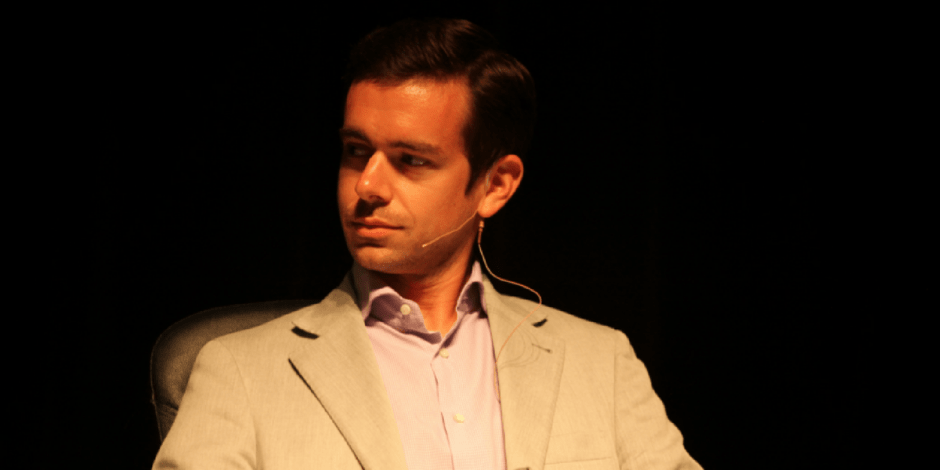witter’s co-founder and chief executive Jack Dorsey said he plans to “double down” on adtech investment, saying the company has learned lessons from past mistakes that could see it pivot towards forging partnerships with third parties rather than acquiring or building its own offering.
“Advertising is our business and technology is how we manifest that,” said Dorsey at the Cannes Lions festival today (21 June.) “We’re definitely not out of the adtech investment phase. We’re doubling down. Especially with the hire of Bruce [Falck]. He’s taken right to it.”
After an exhaustive search, Bruce Falck joined the company earlier this year as general manager of revenue product, reporting directly to Dorsey (previously he was the chief executive of adtech outfit Turn). That hire was very much seen as a push by Twitter to bring a advertisers a more targeted and measurable offering as well as stand up against the Google and Facebook, which control in excess of 70% of the market.
Falck joined having spent much of his career working for adtech businesses. Prior to his tenure at Turn, he served as chief operating officer at video ad company BrightRoll and developed display advertising products at Google.
According to reports, not confirmed by Twitter, it has since been reconsidering several of its advertising products, including the direct response business, parts of the Promoted Tweets product, and TellApart, the digital ad platform it acquired in 2015.
Speaking on what has went wrong in the past on the advertising side, Dorsey said that it simply “didn’t always prioritize [it] in the right way.”
“We acquired companies or platforms and didn’t give them the options that they needed or tie it together with everything else that we’re doing,” he said. “And that doesn’t set up the acquisition for success. So, we’re [now] being really deliberate in what we look at and why.”
He went on to say that moving forward it would look to “buy versus build” its adtech offering, although he did add that it may also look to pursue this strategy by partnering with third-party tie-ups.
“We’ve tended to build a lot in the company. When we started it was before there was a public cloud that we could use and that set the DNA of the company. But we need to change that mindset. We don’t need to build everything, but we also don’t need to acquire everything. We can go through third parties and just really focus on what our strengths are,” he said.
Rebuilding from the inside out
At the beginning of the year, Twitter set about on a rebuild of the company to “get back to basics” and redefine itself around one core mission – being “the best and fastest place to see what’s happening in the world and what people are talking about.”
In a three-pronged attack, it set about re-establishing its execution of the product (“we needed a lot more discipline”), better marketing to “tell the story of what Twitter is” and focusing “our energy on our strengths” on the users already had, rather than trying to attract more.
During this reset phase, it was forced to layoff nearly a tenth of its global workforce – around 350 people – which Dorsey said was one of his darkest periods at the company.
“It was heartbreaking,” he explained. “I remember the night before, I hand wrote thank you cards to everyone we were letting go. I was up until 2am although, unfortunately, there was mishap with mailing and we couldn’t get them to everyone on time. But it was really the toughest thing. It’s still so painful to think about and I wasn’t expecting to do anything like that in my life.”
However, he said it’s now seeing results from the changes. Twitter surprised analysts with a strong performance for the first quarter for the year, seeing a spike in both user growth and earning.
“It now gives us breathing room to take bigger steps and do some non-linear things,” he hinted. “We want to bring a whole lot more creativity back into the organization and more playfulness with what we’re focused on. I’m really excited about this year.”
For more news from Cannes Lions follow the dedicated news stream on The Drum website
Feature Image: Jack Dorsey, Twitter co-founder and chief executive, was speaking at Cannes Lions 2017
By Jennifer Faull
Jen Faull is deputy news editor at The Drum with a remit to cover the latest developments in the retail and FMCG sectors. Based in London, she has interviewed major business figures including top marketers from Mondelez, Unilever, Tesco, and Lidl.


